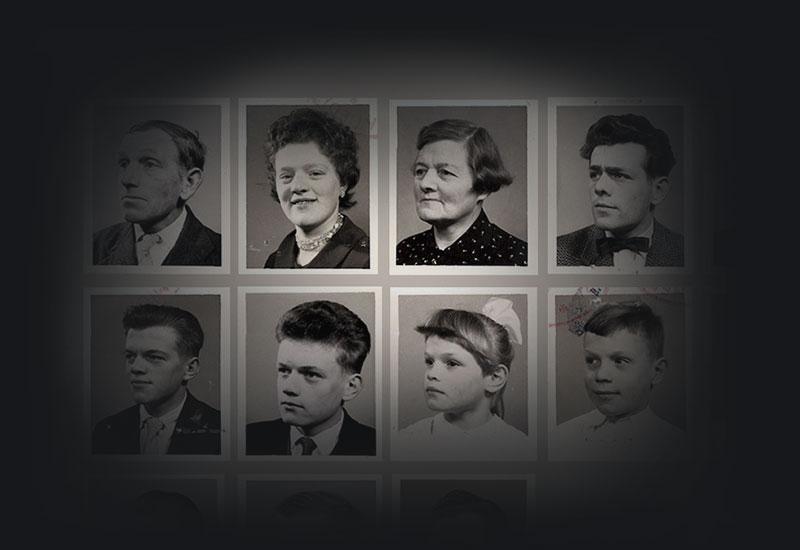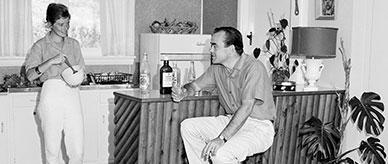Filling in the family tree
Robert Verhagen has been trying to understand his Dutch heritage by drawing together personal recollections, records from Dutch and Australian archives and the historic context.
I’ve always been interested in the family tree. I wanted to find out where the family came from in the very early days, to explain a little bit about why my grandfather was such a cruel person.
From the Netherlands to Australia
Robert’s family were farmers who had lived among their animals in a 400-year-old house-barn in the Dutch province of Noord-Brabant. His grandparents, Bernardus and Johanna Verhagen, had 12 children between 1934 and 1952. It was a harsh upbringing, marked by postwar poverty and famine. The children suffered from scurvy caused by their meagre diet of potatoes. At home, they lived in fear of Bernardus, who lashed out violently when angered.
Robert always assumed that his grandparents and seven of their younger children had immigrated to Australia in 1960 because of the difficult economic conditions. However, it was a mother’s broken heart that uprooted her family to the other side of the world. Robert discovered when the eldest son, Antonius, left for Melbourne in 1959, Johanna could not bear the separation and was desperate to follow him.
Robert’s father, Wilhelmus, recounted to him the advice of an immigration official:
You don’t have to forget where you come from, but make a good contribution to the place that you’re going.
Many of the Verhagens are proud of their Dutch roots and have been successful and contributed to their new home. However, the experience of immigration changed both their identities and their lives. Like other migrants, the Verhagens anglicised their names. Bernardus’ middle name, Maria, was changed to Mario by the Electoral Commission. The Dutch language was forgotten by Wilhelmus and some of his siblings. Even the power relationships in the family changed as the children became adults and had their own careers and families. The cruelty Bernardus had once inflicted faded as he aged and worked as a bricklayer in his son’s business.
Remembering
As Wilhelmus reached his seventies, he began recalling some of the old Dutch phrases. He remembered his childhood and, despite the hardships, he described it to Robert as the best 10 years of his life.
I think he remembers Holland in a good light because Australia was worse. They came out here and they must have had such a horrible time in those first years that for Dad, as an 11-year-old, he remembered his childhood on the farm, maybe through rose-coloured glasses. It shows you that assimilation is so hard on people, and they are changed in that process.
Over the years more of the Verhagen children migrated to Australia. Robert is one of 32 first cousins, who occasionally come together to remember and retell family stories. Robert continues to research his Dutch heritage:
What am I looking for now? I think it’s more questions. That’s really acknowledging that it’s a never-ending search for what you don’t know. Knowing that you’ll never know everything, but sometimes you might know enough.
[Edited excerpts from interview with Robert Verhagen, October 2024]
Read Robert’s short story Herinnering about his Dutch family history: https://westerlymag.com.au/herinnering/





